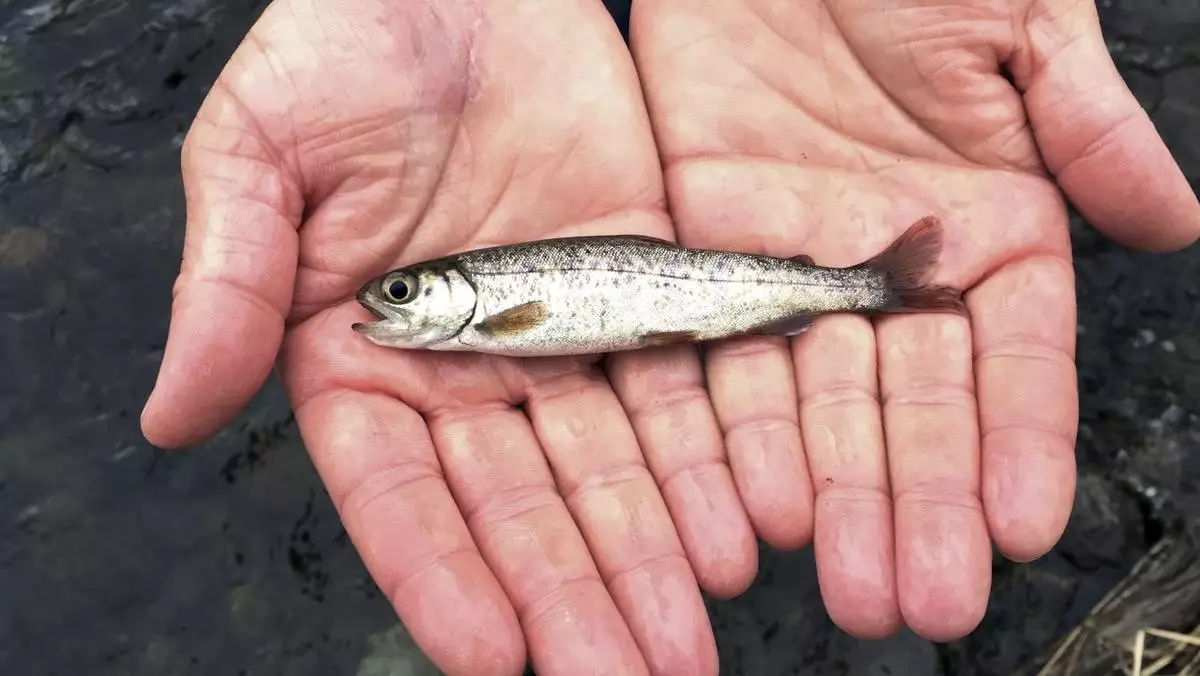A popular Tokyo aquarium said Thursday it has resumed partial operations following the death of more than 94 percent of the fish in its largest tank, most likely because of a lack of oxygen.

In this undated photo released by Sunshine City, stingrays and other fish swim in the "Sunshine Lagoon" tank at Sunshine Aquarium in Tokyo. (Sunshine City via AP)
Sunshine Aquarium said 1,235 fish had died in the "Sunshine Lagoon" tank. Only 73 fish, including zebra sharks and stingrays, survived.
The aquarium said it plans to gradually add more fish to the 12-meter (40-foot) -wide tank.
Underwater performances in the tank and guided tours of the aquarium have been suspended.
A security guard found the dead fish on Wednesday. The aquarium said it closed that day as officials investigated the cause and cleaned up the tank.
It said the stoppage of a bubble-generating tank cleaner that also enhances circulation of chemicals for treating unhealthy fish might have caused an oxygen decline.
The aquarium has more than 500 species of sea creatures, including penguins, sea lions and otters.
PORTLAND, Maine (AP) — The number of fish on the government's overfishing list sunk to a new low last year in a sign of healthy U.S. fisheries, federal officials said.
The National Oceanic and Atmospheric Administration released an updated analysis of American fisheries late last week via its annual "Status of the Stocks" report, which provides an assessment of the populations of the seafood species fishermen catch and customers buy. The report states that 94% of fish stocks are not subject to overfishing, which is slightly better than a year ago.
The U.S. was able to remove several important fish stocks from the overfishing list, NOAA said in a statement. They include the Gulf of Maine and Cape Hatteras stock of Atlantic mackerel and the Gulf of Mexico stock of cubera snapper.
NOAA's report arrives as international governments and non-governmental organizations have tried to crack down on illegal, unreported and unregulated fishing around the worldwide ocean. In Europe, the European Commission has worked to prioritze detering unsustainable fishing practices.
The removal of species from the overfishing list shows the U.S. is making progress, said Rick Spinrad, NOAA's administrator.
“By ending overfishing and rebuilding stocks, we are strengthening the value of U.S. fisheries to the economy, our communities and marine ecosystems,” Spinrad said.
The U.S. has made progress in removing fish species from the overfishing list in recent previous years, also. The overfishing list reflects species that have an unsustainably high harvest rate.
NOAA also keeps a list of overfished stocks. Those are species that have a total population size that is too low. The agency said that number also fell slightly last year. More than 80% of fish stocks are not overfished, the agency said in its report.
NOAA said it was able to remove Atlantic coast bluefish and a Washington coast stock of coho salmon from the overfished list. The agency said it also added a few species, including Mid-Atlantic summer flounder, to the lists.
Commercial fishermen harvested more than 8 billion pounds of seafood valued at nearly $6 billion in 2022, the agency said.

FILE - A juvenile coho salmon is held by a fish biologist at the Lostine River, March 9, 2017, in Lostine, Ore. The number of fish on the government's overfishing list sunk to a new low in 2023, a sign of healthy U.S. fisheries, federal officials said. (AP Photo/Gillian Flaccus, File)











